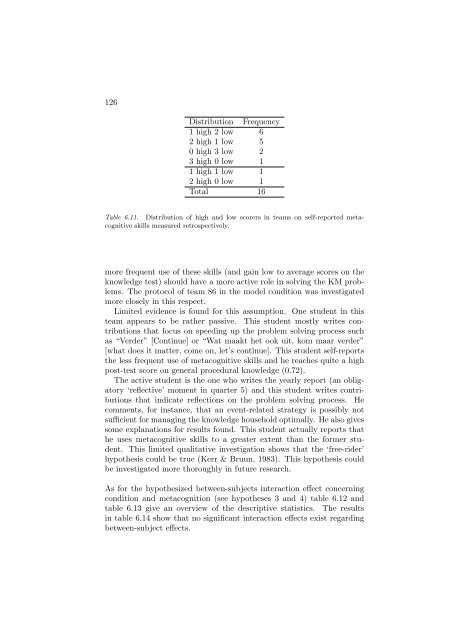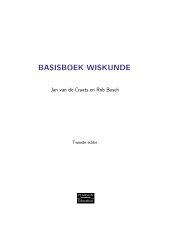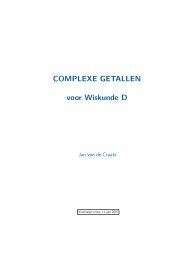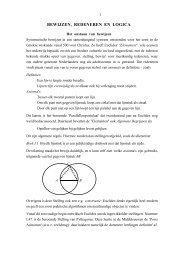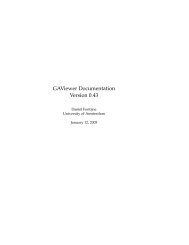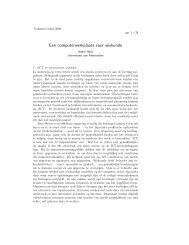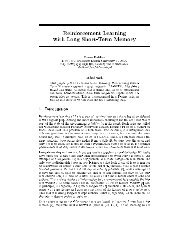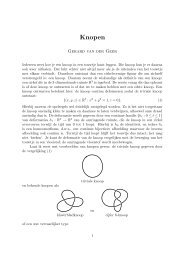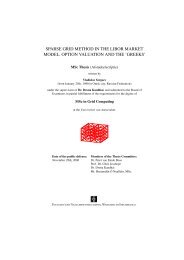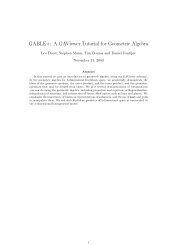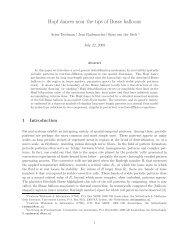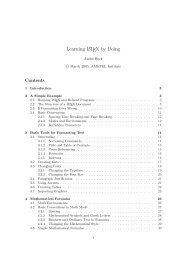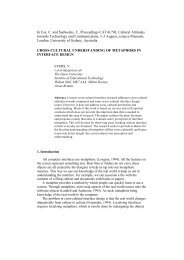The role of metacognitive skills in learning to solve problems
The role of metacognitive skills in learning to solve problems
The role of metacognitive skills in learning to solve problems
Create successful ePaper yourself
Turn your PDF publications into a flip-book with our unique Google optimized e-Paper software.
126<br />
Distribution Frequency<br />
1 high 2 low 6<br />
2 high 1 low 5<br />
0 high 3 low 2<br />
3 high 0 low 1<br />
1 high 1 low 1<br />
2 high 0 low 1<br />
Total 16<br />
Table 6.11. Distribution <strong>of</strong> high and low scorers <strong>in</strong> teams on self-reported <strong>metacognitive</strong><br />
<strong>skills</strong> measured retrospectively.<br />
more frequent use <strong>of</strong> these <strong>skills</strong> (and ga<strong>in</strong> low <strong>to</strong> average scores on the<br />
knowledge test) should have a more active <strong>role</strong> <strong>in</strong> solv<strong>in</strong>g the KM <strong>problems</strong>.<br />
<strong>The</strong> pro<strong>to</strong>col <strong>of</strong> team 86 <strong>in</strong> the model condition was <strong>in</strong>vestigated<br />
more closely <strong>in</strong> this respect.<br />
Limited evidence is found for this assumption. One student <strong>in</strong> this<br />
team appears <strong>to</strong> be rather passive. This student mostly writes contributions<br />
that focus on speed<strong>in</strong>g up the problem solv<strong>in</strong>g process such<br />
as “Verder” [Cont<strong>in</strong>ue] or “Wat maakt het ook uit, kom maar verder”<br />
[what does it matter, come on, let’s cont<strong>in</strong>ue]. This student self-reports<br />
the less frequent use <strong>of</strong> <strong>metacognitive</strong> <strong>skills</strong> and he reaches quite a high<br />
post-test score on general procedural knowledge (0.72).<br />
<strong>The</strong> active student is the one who writes the yearly report (an obliga<strong>to</strong>ry<br />
‘reflective’ moment <strong>in</strong> quarter 5) and this student writes contributions<br />
that <strong>in</strong>dicate reflections on the problem solv<strong>in</strong>g process. He<br />
comments, for <strong>in</strong>stance, that an event-related strategy is possibly not<br />
sufficient for manag<strong>in</strong>g the knowledge household optimally. He also gives<br />
some explanations for results found. This student actually reports that<br />
he uses <strong>metacognitive</strong> <strong>skills</strong> <strong>to</strong> a greater extent than the former student.<br />
This limited qualitative <strong>in</strong>vestigation shows that the ‘free-rider’<br />
hypothesis could be true (Kerr & Bruun, 1983). This hypothesis could<br />
be <strong>in</strong>vestigated more thoroughly <strong>in</strong> future research.<br />
As for the hypothesized between-subjects <strong>in</strong>teraction effect concern<strong>in</strong>g<br />
condition and metacognition (see hypotheses 3 and 4) table 6.12 and<br />
table 6.13 give an overview <strong>of</strong> the descriptive statistics. <strong>The</strong> results<br />
<strong>in</strong> table 6.14 show that no significant <strong>in</strong>teraction effects exist regard<strong>in</strong>g<br />
between-subject effects.


